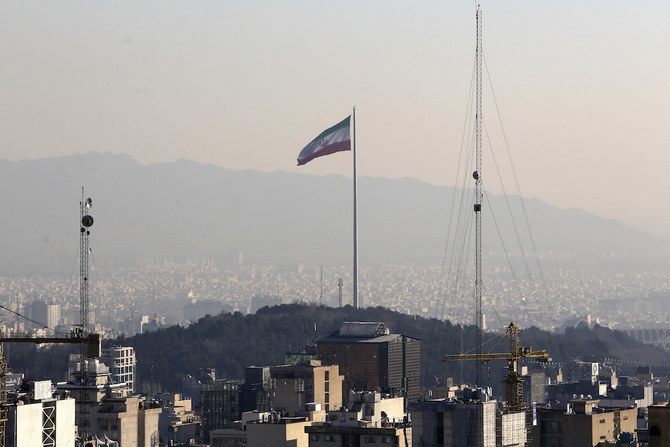LONDON: Dozens of alleged human rights abusers around the world face new sanctions Friday under a coordinated action by the United States, Britain and Canada to mark the 75th anniversary of the Universal Declaration of Human Rights.
The long list of targets ranges from human traffickers in Southeast Asia involved with “scam farm” operations, Taliban officials responsible for rights abuses in Afghanistan and leaders of gangs ravaging Haiti’s population.
London said it was hitting 46 individuals and entities with asset freezes and travel bans ahead of the December 10 landmark, recognized annually as International Human Rights Day.
The United States for its part targeted 37 people in 13 countries, while Canada imposed sanctions on seven people as part of the joint action.
“We will not tolerate criminals and repressive regimes trampling on the fundamental rights and freedoms of ordinary people around the world,” said UK Foreign Secretary David Cameron.
“I am clear that 75 years after the Universal Declaration of Human Rights, the UK and our allies will continue to relentlessly pursue those who would deny people their freedom.”
The landmark 30-article document, which outlines fundamental rights and freedoms for all of humanity, was adopted on December 10, 1948 during the early days of the United Nations.
The UK’s list of targets include 17 members of the Belarusian judiciary, including prosecutors in charge of politically motivated cases against activists, journalists and rights defenders.
Five individuals in Iran face curbs for imposing and enforcing the country’s mandatory hijab law, while nine people were targeted for trafficking people in Cambodia, Laos and Myanmar to work for online “scam farms.”
US Secretary of State Antony Blinken said that “with today’s actions, the United States is addressing some of the most challenging and harmful forms of human rights abuses in the world, including those involving conflict-related sexual violence, forced labor, and transnational repression.”
Among those facing US sanctions are a senior Taliban official who participated in the decision-making to ban women and girls from school after the group’s 2021 takeover of Afghanistan.
Blinken said that in addition to the US sanctions imposed Friday, Washington would recommend UN Security Council designations for four Haitian gang leaders and five armed group chiefs in the Democratic Republic of Congo.
Canada for its part included in its list four Russians responsible for LGBTQ rights violations in Chechnya as well as the leader of the junta in Myanmar.
“Our actions to promote respect for human rights are stronger and more durable when done in concert with allies committed to the international rules-based order,” Blinken said of the coordinated action with Ottawa and London.
US, UK, Canada sanction dozens on human rights anniversary
https://arab.news/cxka9
US, UK, Canada sanction dozens on human rights anniversary

- The United States for its part targeted 37 people in 13 countries, while Canada imposed sanctions on seven people as part of the joint action
- Five individuals in Iran face curbs for imposing and enforcing the country's mandatory hijab law
Britain restricts some visas from four nations in major overhaul

- Britain had previously said it would make refugee status temporary and speed up deportations of those who arrive illegally, in an overhaul aimed at stemming the rise of the populist Reform UK party and tackling abuse of the current system
LONDON: Britain said on Tuesday the government would end study visas from Afghanistan, Cameroon, Myanmar, and Sudan, and work visas for Afghans, in a major crackdown as anti-immigration sentiment rises in the country.
“An ‘emergency brake’ on visas has been imposed for the first time on nationals from four countries following a surge in asylum claims from legal routes,” the Home Office said in a statement.
Britain had previously said it would make refugee status temporary and speed up deportations of those who arrive illegally, in an overhaul aimed at stemming the rise of the populist Reform UK party and tackling abuse of the current system.
Interior minister Shabana Mahmood said that “Britain will always provide refuge to people fleeing war and persecution, but our visa system must not be abused.”
“That is why I am taking the unprecedented decision to refuse visas for those nationals seeking to exploit our generosity,” she added.
The Home Office said Mahmood will introduce new legislation this week to restore order and control to the country’s borders.














